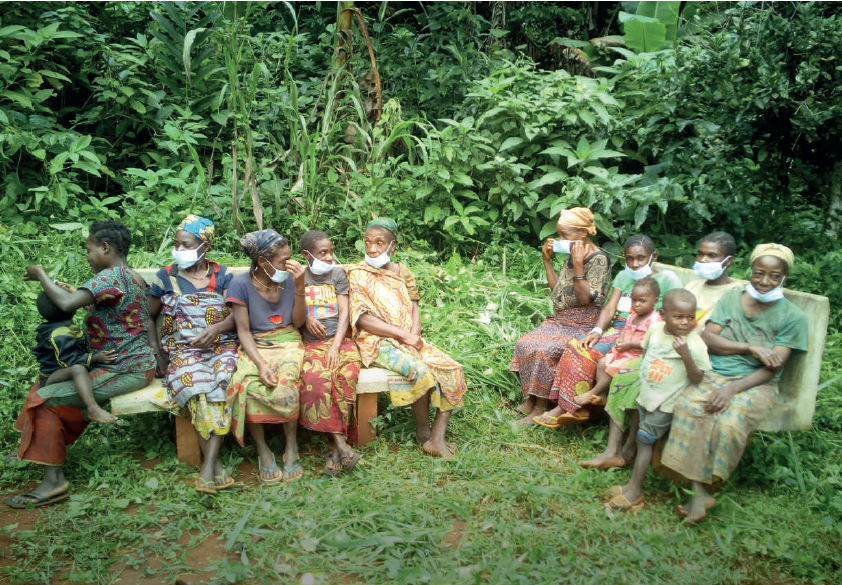Conversations about Conservation
Reflections on conservation, natural resources and territory from 16 Baka and Bakwele communities in the vicinity of the proposed Messok Dja protected area, Sangha Department, Republic of Congo
This paper summarises the perspectives of Baka (indigenous) and Bakwele (Bantu) communities living in the Messok Dja forest block on conservation and natural resource use, as well as highlighting key issues of concern for these communities related to their customary lands and forests. These views were canvassed by Forest Peoples Programme with 16 communities (and more than 600 people) through multiple field trips in 2021 and 2022.
Read the full report in English
Lisez le rapport complet en français
For both Baka and Bakwele communities in the Messok Dja forest block, their land and forests remain of critical importance for both their livelihoods and their culture. Despite difficulties caused by loss of access to some areas, communities show a strong interest in sustainably managing their own lands – and women, often sidelined in decision-making about land, are increasingly asserting their right to participate.
Communities are unhappy with mining and logging activities
Communities are concerned by industrial activities (forestry and mining) in their customary areas and wish to protect their forests from these uses. Forestry is associated with destruction of valued trees and restrictions on access to forest areas. Mining exploration in turn has polluted water sources, displaced traditional artisanal goldminers, and led to the creation – and abandonment – of dangerous mining pits.
Communities are also very concerned by restrictions imposed by conservation activities
While communities want to protect their lands and forests against exploitation, they are also concerned by negative impacts linked to the restrictions of their own access to lands and use of resources imposed in the name of conservation. These restrictions have caused significant issues for both Bakwele and Baka communities, including:
- Severe impacts on cultural and livelihood activities, including hunting, cultural rituals, honey gathering, use of forest medicinal products, etc. These impacts have been particularly strongly felt by the Baka.
- Continued issues with harassment and abuses by ecoguards (cited by 10 out of 16 communities). While there may be some early indications that harassment by ecoguards is reducing, many communities are still concerned with ecoguard behaviour. Baka communities have a particularly strong fear of ecoguards.
- Human-wildlife conflict, involving uncompensated and often repeated destruction of crops by animals (cited by 12 out of 16 communities). It is one of the most significant community concerns, particularly for Bakwele communities.
The creation of the Messok Dja protected area is an important opportunity to show that conservation can be done differently in the Congo Basin – in a way that recognises the contribution of communities and respects their rights. As this report shows, the communities of Messok Dja are ready and willing to actively participate as key actors to support conservation of their traditional lands and forests. It is now for the Congolese State to listen, and take the lead in ushering in a new era of community-based conservation in the Congo Basin.



